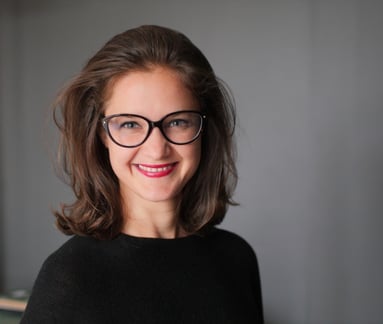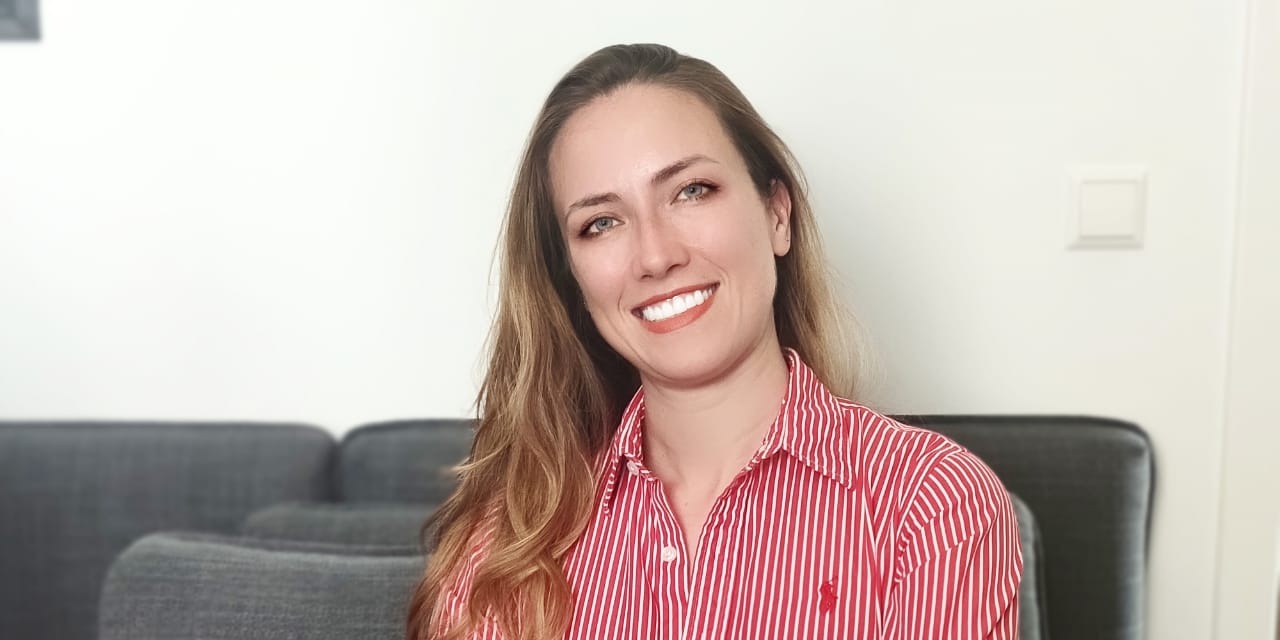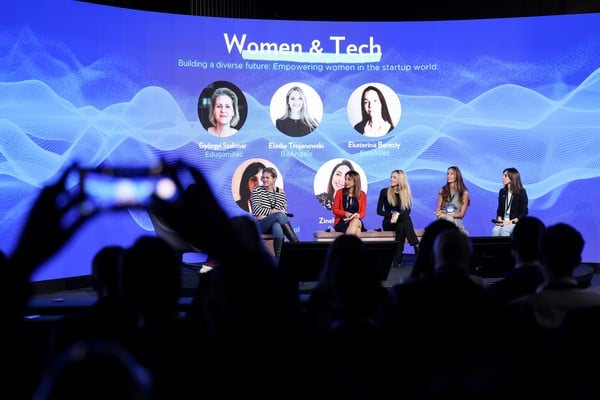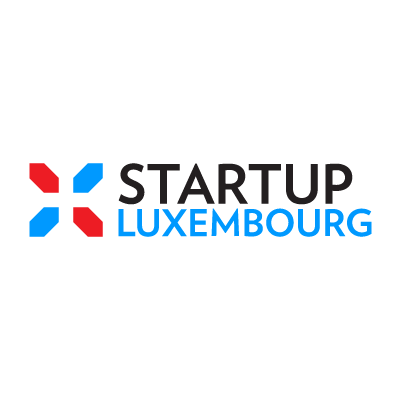Serial entrepreneur, technology investor, and partner at Cycle Group, Clelia Beck has carved a unique path as a bridge between continents. Having spent a significant part of her professional life in Asia, she now internationalises ventures, with a passion for impact through Luxembourg-based fund for sustainable energy technologies, Cycle Group.
Clelia Beck, Co-founder of Cycle Group, always had a drive to connect and explore the world. She studied international relations in Geneva, with subsequent stints working in the German Embassy in Honduras, the International Labour Organisation and the United Nations.
In early 2009, her journey led her to Hong Kong, back when the city was growing, and markets in China were opening up to foreign investments. She began her career in venture capital at Asia Access Holding, an emerging market fund manager bridging investments between Zürich and Hong Kong. Her understanding of both business cultures in Europe and Asia, and the drive to connect and bridge those markets led her to a meaningful and beneficial path.
Supporting European companies in Asia
During her time in Asia, she set-up subsidiaries for European industrial companies from the garment, textile and fashion industries. Under her leadership, the Asian arm of the Italian brand Paganini Milano, which she founded, extended beyond Hong-Kong into Singapore, Japan, Taiwan and China, and later exited in a merger into now Hong Kong listed China Brilliant Global Group.
 “As an entrepreneur, I supported European companies to build sales channels or manufacturing in Asia and enabled enterprises to work with European and Asian partners. I was always a bridge between Europe and Asia, and am today repeating this journey for emerging technology companies which are part of the Cycle Group” explains Clelia.
“As an entrepreneur, I supported European companies to build sales channels or manufacturing in Asia and enabled enterprises to work with European and Asian partners. I was always a bridge between Europe and Asia, and am today repeating this journey for emerging technology companies which are part of the Cycle Group” explains Clelia.
Cycle Group is a Luxembourg based management company operating several venture capital funds focused on sustainable, industrial technologies, that can be scaled up fast.
The group’s portfolio companies include Element 3-5, a semiconductor technology company revolutionising the industry due their 90% more energy efficient process. Another example of the group’s portfolio company is Nuventura, a company focusing on SF6-free gas-insulated switchgear technologies. SF6 is one of the most potent greenhouse gases we know, its high atmospheric stability and ability to trap infrared radiation means it's far more potent at warming the earth's atmosphere, more than 23.500 the effect of CO2 per tonne and staying in the atmosphere for longer periods over 3000 years – the resulting annual effect being equivalent to annual emission of more than 100 million cars.
The Group funds and supports companies developing energy-efficiency and emission reduction technologies for broad industrial applications. They also provide international business development and strategic support services to their portfolio companies and beneficiaries of the European Innovation Council programmes.
Internationalising scalable climate technologies
Clelia believes internationalising scalable climate technologies is one of the fastest paths to reducing greenhouse gas emissions as it allows for rapid and widespread adoption of solutions that have already been proven effective in some regions around the world. “I saw how polluting the garment industry can be, and it was clear to me, that I had to do something more environmentally friendly. Ideally, I wanted to address sustainability with an international reach. For me, climate technologies and their fast adaptation in Asia are key, because the scale of their manufacturing industries are huge and rollouts happen fast,” she underlines.
According to her, by sharing knowledge, resources, and expertise across borders, countries can leverage each other's strengths and learn from their mistakes, accelerating the deployment of sustainable technologies such as renewable energy, energy efficiency in manufacturing, and other industrial practices.
International cooperation enables better access to funding and incentives that support the development and implementation of these technologies.”
“It also helps create global markets for clean tech products and services, which can drive innovation and reduce costs through economies of scale. Ultimately, by working together on a global level, countries can achieve their climate goals more quickly and effectively than if they were to act alone. And of course, this all drives up sustainable values created,” elaborates Clelia.
“We chose Luxembourg because it caters to climate funds like us, embedded in the European ecosystem, and we have all structural and strategic support we need here,” she mentions, while highlighting the potential for European partnerships with growth potential in Asia. “We’re focusing a lot on Singapore as a first step into Asia. It serves as a hub with strong legal protection, access to strategic financing, and lots of talent, and know-how. With our partners its a great place to showcase climate technologies for market validation and subsequent distribution throughout Southeast Asia, South Korea, Japan, India, and China” she indicates.
Enabling diverse teams
“There is a lot of diverse talent needed to facilitate change, especially when investing in energy technology as competence needs to range from scientific and technical expertise to business development skills, cultural and market understanding and language abilities. At Cycle I work with very technical founders, an investment adviser team with diverse backgrounds, and deep technical knowledge and convictions,” says Clelia. The challenge, as she puts it, is being recognised as the serial entrepreneur and experienced businesswomen she is, and not a mere “decorative flower pot” in the board room.
Reflecting on gender dynamics in the industry, Clelia mentions, that she met impressively talented women in science, technology and finance, and they are beginning to be more visible as such, as the field is shifting its attention, and also inviting women as speakers, and trying to increase their previously minimal presence in the spotlight.
It is a dynamic that will take some time to change, but many current initiatives like this interview series or the recent EIF event ‘empowering equity’ are doing a great job in shifting perceptions of these stereotypes and supporting emerging, diverse VC founder teams.”
Next steps and advice for aspiring women in tech and investment
Beck’s advice to young women entering the tech and investment fields centres on courage, boldness, and self-reflection. She encourages women to challenge societal beliefs and not let stereotypes hinder their progress. “We have to step up the game, and this requires us to first reflect on these subconscious insecurities that make us feel inferior in order for us to excel in male-dominated environments.”
She thinks as all talents, women should seek to develop their skills, speak up, seek out mentorship, network, and create their own opportunities, women can surely succeed also in these still male dominated fields and contribute to shaping the future of business.
Looking ahead, Beck sees a significant opportunity for change towards sustainability in all industries, urging the financial sector to actively support this transition. Mentioning Europe’s potential in climate technologies, she also calls for more bridges to share solutions globally and for increased international collaboration to address climate challenges effectively.
“This has to happen now because we are already pretty late in the process. No one can do it alone. If we change Luxembourg, that’s great. If we change Europe, it will still be amazing, but there will be no big imprint. If changes happen in Asia and the rest of the world, then we can make a dent in global emissions,” she concludes.
Stay tuned!
Sign up now and receive the latest news about our ecosystem into your inbox.
You May Also Like
These Related Stories

“We can only move the dial of the gender gap by addressing the root cause”

A promising career path for women in HPC






